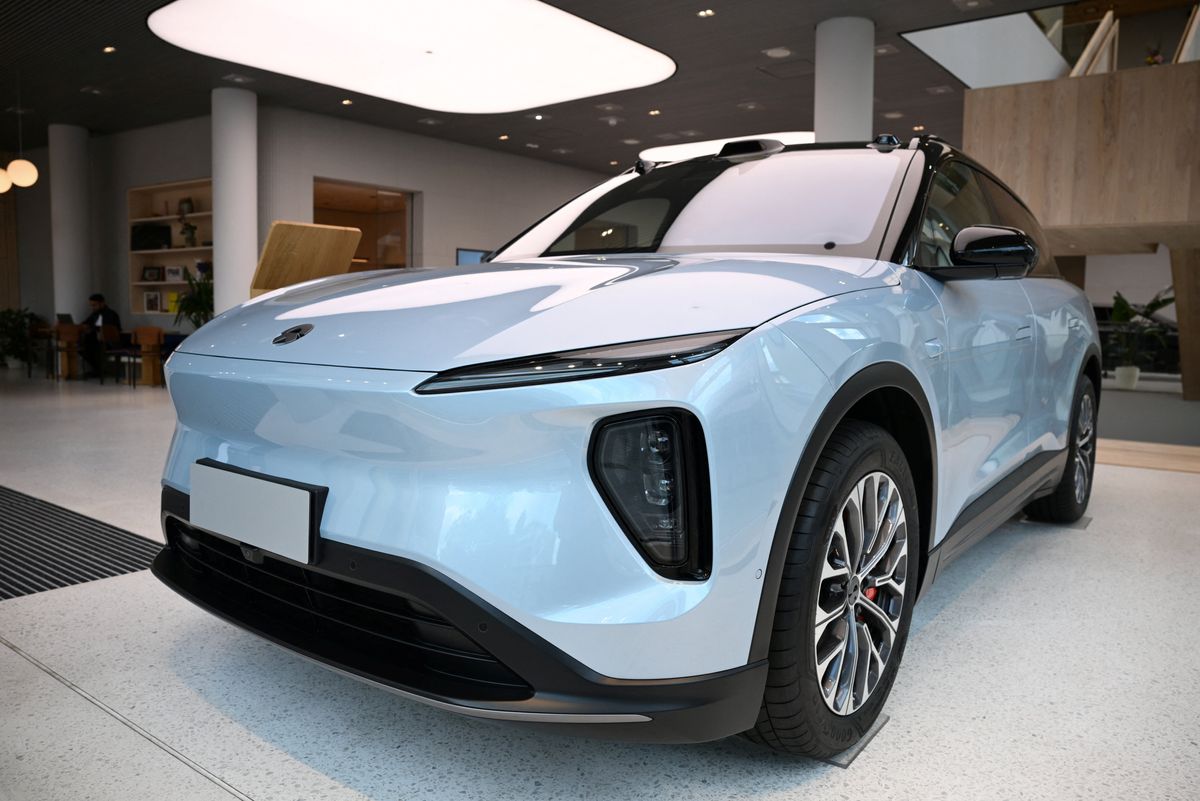Chinese EV manufacturers pivot to Europe
Some brands, like MG, have already made a name for themselves in Europe, but others, like XPeng and Nio, face the task of winning over skeptical buyers.

A few minutes every morning is all you need.
Stay up to date on the world's Headlines and Human Stories. It's fun, it's factual, it's fluff-free.
The backstory: In the world of electric vehicles (EVs), Chinese manufacturers have been making a buzz. Last year, EV sales in China shot up, with an 87% surge compared to the year before, according to Counterpoint Research. Now, Chinese EV giant BYD has managed to outshine foreign competitors, like Volkswagen, and grabbed the title of China's top-selling car brand in the first part of this year.
But these Chinese EV companies are now turning their gaze toward Europe. Brands like BYD, Nio and SAIC Motor are venturing into Europe. Chinese EVs are usually cheaper than the ones in Europe, giving them an edge in terms of price. But when Chinese EVs try to sell in Europe, there are extra costs like shipping, taxes and meeting European rules.
More recently: According to the car experts over at Inovev, about 8% of all the new EVs rolling around Europe this year are actually made by Chinese companies. This is a step up from 6% last year and 4% in 2021. There's even a prediction from Allianz that around 11 new budget-friendly Chinese-made EVs are going to hit European streets by 2025.
Meanwhile, western carmakers are looking to stay competitive. Stellantis CEO Carlos Tavares has warned about what he's calling a "Chinese invasion" of these pocket-friendly EVs swarming into Europe, saying competition with Chinese manufacturers would be “extremely brutal.”
The development: Just last week, a key player in China's car manufacturing association, Chen Shihua, talked about how Chinese EV companies should be careful about expanding too much globally. He highlighted the need for a clear plan while going big.
Some brands, like MG, have already made a name for themselves in Europe, but others, like XPeng and Nio, face the task of winning over skeptical buyers. Surveys suggested that many European EV shoppers are unfamiliar with Chinese brands, and even those who are aware may hesitate to buy them due to lingering doubts.
As a strategy to overcome this skepticism, several Chinese manufacturers have scored five-star safety ratings under European standards to give potential buyers a boost of confidence. As these Chinese EV giants step into Europe, they're developing ways to improve their chances of success with European customers. Take Zeekr, for instance. The company uses test drives and showrooms to wow European buyers with the quality of its vehicles. Then there's GAC, another Chinese carmaker that set up a design department in Milan to understand what Europeans really want before moving into sales in the region.
Key comments:
"It isn’t that smooth for our automakers to go global,” said Chen Shihua, deputy-general of China’s automobile manufacturing association, at a briefing last week. "We should pay attention to the risks ... currently companies might be over-stretched, stepping into every region without a clear focus."
"All Chinese EV makers want to achieve Euro NCAP five-star ratings in order to be more competitive in the European market," said Brian Gu, president of Chinese EV maker Xpeng.
"BYD is very, very strong," said Oliver Blume, CEO of Volkswagen, during an event at the Shanghai auto show in April. "In the end, not everything is about volume. We want to have a successful business, and it is more important to be the best international group here in China."
"The Japanese joint ventures should be feeling more threatened," said Yang Jing, the director of China Corporate Research at Fitch Ratings. "Some Japanese carmakers have announced big steps in their strategic realignment. One reason is that the China market's electrification has happened quicker than they expected."




Comments ()